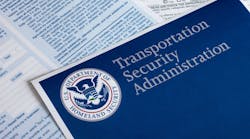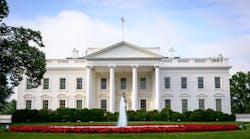It’s all hands on deck as National Tank Truck Carriers and the other councils that are part of the American Trucking Associations press their argument that the hours of service regulation’s 34-hour restart rule is fatally flawed and should be voided. Congress appears to be listening.
With bipartisan support, Senate and House appropriations committees have maintained language in the final FY2015 appropriations bill that would set aside the current version of the 34-hour restart rule in hours-of-service regulations.
“We are making progress, but we need to continue reaching out to Congressmen and Senators to ensure that we have their support on this issue,” says Daniel Furth, president of National Tank Truck Carriers. “The Administration’s HOS position is disappointing, but not surprising. Time and again, they shoot first and aim later and the anti-trucking sentiment is just typical. After all, it was FMCSA (Federal Motor Carrier Safety Administration) itself that admitted to Congress that they didn’t do their homework on the restart provision. Frankly, we believe the public is tired of this “smarter than you” approach to government as evidenced on Election Day. The lack of due diligence on the HOS provision remains an insult to the nine million professionals in the trucking industry who focus on safety each and every load in real time. No one would knowingly plan to put all of North America’s trucks on the road in rush hour under the guise of safety and Senator (Susan) Collins should be commended for calling out DOT on this poorly conceived rule."
Similar comment came from American Trucking Associations (ATA) leaders. “In July 2013, with insufficient research, analysis and understanding of the consequences, the Obama Administration placed two restrictions on America’s truck drivers that increased the risk of crashes on America’s highways,” says ATA President and Chief Executive Officer Bill Graves. “Senator Susan Collins, and a bipartisan majority of Senate appropriators, recognized the flaws in the changes put forth by the Federal Motor Carrier Safety Administration and voted to approve a common sense ‘time out’ to allow for proper research to be conducted.
“This isn’t a rider being added in the middle of the night at the 11th hour as some would have the public believe. This reasonable solution allows the government to do the research it should have done ahead of time and gives the industry the flexibility thousands of fleets and millions of drivers are pleading for.”
The provision, commonly known as the Collins Amendment, would suspend the restrictions imposed on drivers using the 34-hour restart: requiring two periods between 1am and 5am and arbitrarily limiting the use of the restart to once per week. These restrictions--according to the government’s own limited study data--push more trucks onto the roads in the early morning hours, statistically the riskiest time of day for crashes. FMCSA failed to consider this increased risk when making these changes and the Collins Amendment would suspend these changes until further research is conducted.
“Since these restrictions were imposed, driver after driver and fleet after fleet have said they are having a much greater impact than FMCSA envisioned and as a result, the agency should have to do more research before imposing these rules,” says ATA Chairman Duane Long, chairman of Longistics.
“At the end of the day, self-appointed trucking industry critics have used deceptive tactics and outright lies to paint what, by any measure, is a reasonable resolution to a potentially serious safety problem,” Graves adds. “These falsehoods and half-truths shouldn’t prevent congress calling for a time out on these poorly researched and ill-conceived restrictions.”
What the amendment would do:
• Require the FMCSA to conduct a study in order to assess the operational, safety, health and fatigue impacts of the restart provision. This study will assess drivers’ safety critical events, fatigue and levels of alertness and driver health outcomes. This is what safety advocates have asked the Department to undertake. Further, in order to ensure that the study produces credible results, DOT’s Inspector General will review and comment on the Department’s plan as well as report to the Secretary and House and Senate Committees on Appropriations on the study’s compliance with the requirements.
• Provide a temporary suspension of two provisions (the two consecutive overnight periods from 1:00 am–5:00 am and the use of the restart rule to only once every 168 hours (once a week) to lift the undue hardship while DOT conducts the study.
• The DOT secretary shall submit a final report on the findings and conclusions of the study and the Department’s recommendations on whether the provisions in effect on July 1, 2013, provide a greater net benefit for the operational, safety, health and fatigue impacts of the restart provision.
• Provides $4 million in unobligated balances to conduct this study.
What the amendment does NOT do:
The amendment would not nullify the entire restart rule, or the entire set of hours of service rules, as some have erroneously stated. For example, the amendment would not make changes to:
• The minimum off-duty hours between shifts;
• The maximum on-duty period each shift;
• The maximum driving hours per day;
• The mandatory meal/rest break during a shift;
• The sleeper berth requirements for splitting off-duty time; and
• The electronic on-board recorders rule.








